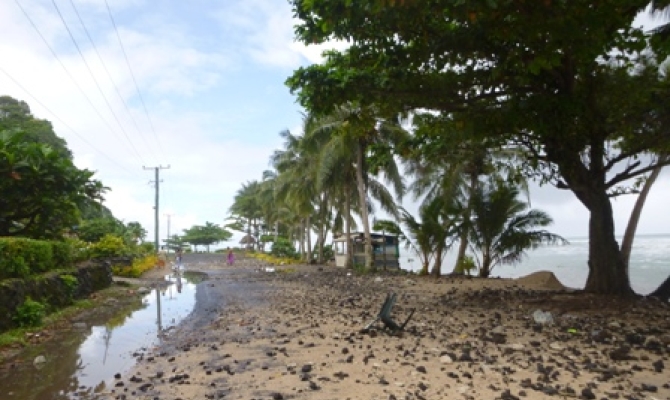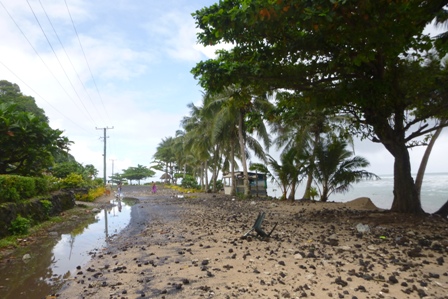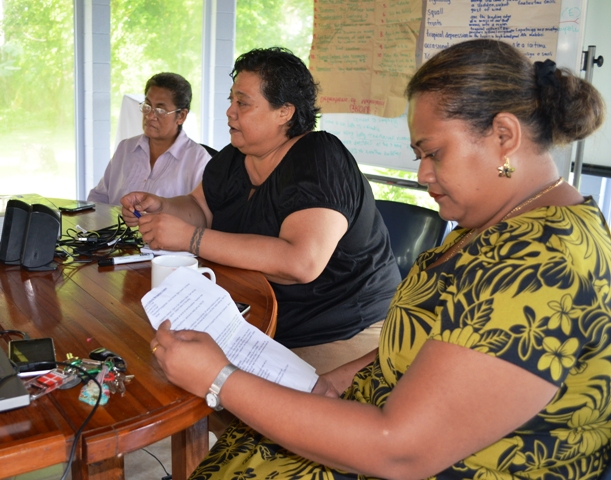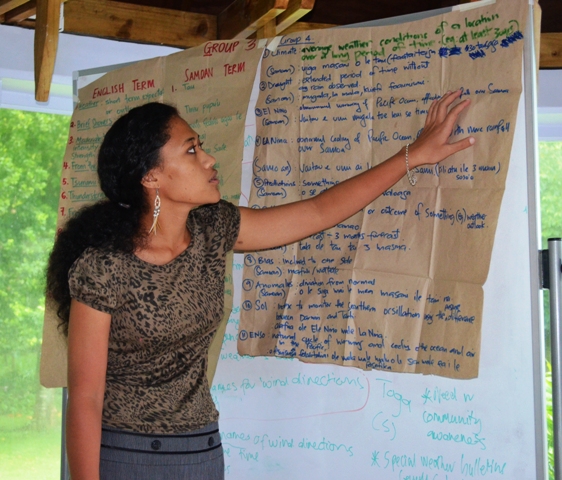
Climate Change Resilience
 Luatuanu'u Village in Samoa during high tides and swells, March, 2013.
Luatuanu'u Village in Samoa during high tides and swells, March, 2013.Photo: Carlo Iacovino
The training was coordinated by the Secretariat of the Pacific Regional Environment Programme (SPREP) as part of a project funded by the Government of Finland to reduce the vulnerability of local communities to climate change impacts.
It brought together participants from the Samoa Meteorological Service, Disaster Management Office and the Samoa Red Cross to help address ways that weather information can be shared so that audiences better understand and can be better prepared.
The training also covered perspectives from members of the community, as to how they receive weather information and what they would like to see included so that they are better able to understand the information shared.
"This is a timely workshop as we go through the cyclone season and it will help in the presentation of information and assist us to be effective in delivering the messages to the public," said Mulipola Tainau Ausetalia Titimaea, the ACEO of the Samoa Meteorological Service.

"The weather impacts us all - in the community we have the fisherman, the weaver, the planter - all of whom rely on weather. Now we have the technology to make weather predictions three months ahead," said Dr. Netatua Pelesikoti, the Climate Change Director at SPREP.
"The training is to help people be better prepared for what is coming our way with the climate through strengthening skills for working with the media, an important messenger of weather information."

Having completed the training, the next steps include support for developing resources to help the Met Service communicate weather terms using terminology and explanations, development of a Media guide and future training where required.
This training activity is one component of FINPAC – the Finnish Pacific Project on Reduced vulnerability of the Pacific Island Country Villagers' livelihoods to the Effects of Climate Change. This project is funded by the Government of Finland and implemented by SPREP.